World Meteorological Day 2025: Bridging the Gap in Early Warning Systems
especiales
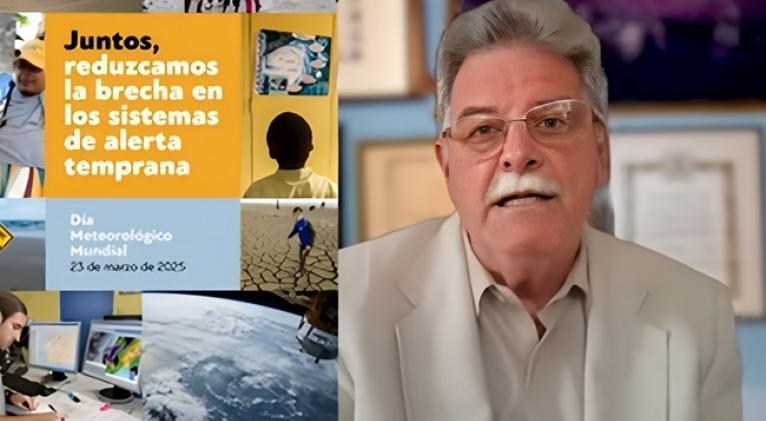
At the airing of the weather forecast for Cuba and the Caribbean last Friday on Canal Caribe, the beloved Dr. José Rubiera, anticipating the celebration taking place around the world today, commented at length on the importance of World Meteorological Day and, in particular, on the significance of the slogan chosen for the occasion.
The Vice President of the Hurricane Committee of the World Meteorological Organization (WMO) Regional Association IV for North America, Central America, and the Caribbean, recalled that this date was chosen because on this day, 75 years ago, the convention was signed that put the WMO into effect as a United Nations agency specializing in meteorology and hydrology worldwide.
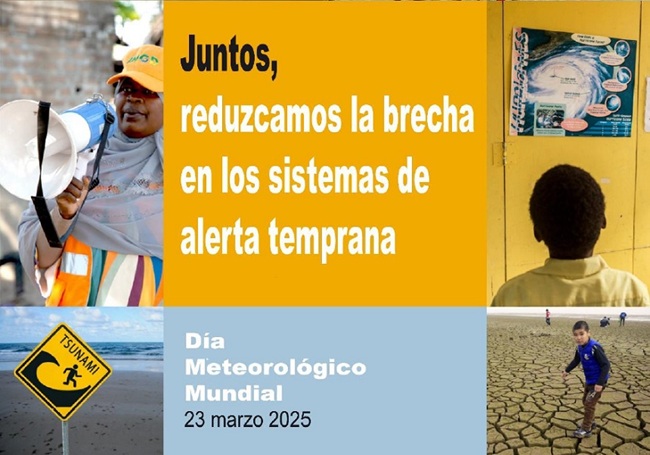
As for the slogan accompanying this celebration—Together, let's close the gap in early warning systems—he emphasized that this year "couldn't be more important," considering the data and solid facts:
"2024 has been confirmed by the WMO," he said, "based on six international records, as the warmest year ever recorded on the planet. It reached 1.55 degrees Celsius above the historical average. It seems like a small figure, but we must remember that the Intergovernmental Panel on Climate Change set a goal of not exceeding 1.5; and the Paris Protocol, signed a few years ago, set 1.5 as the threshold that should not be exceeded. But 1.55 has already surpassed that threshold."

He explained that “the warming of the Earth's atmosphere is due to the presence of greenhouse gases, the main one being CO2. Just on March 7th, the Mauna Loa Observatory in Hawaii, USA, one of the observatories measuring the presence of CO2 in the atmosphere for the longest time, recorded the highest concentration known in the history of such measurements: 430 parts per million, which is a record.”
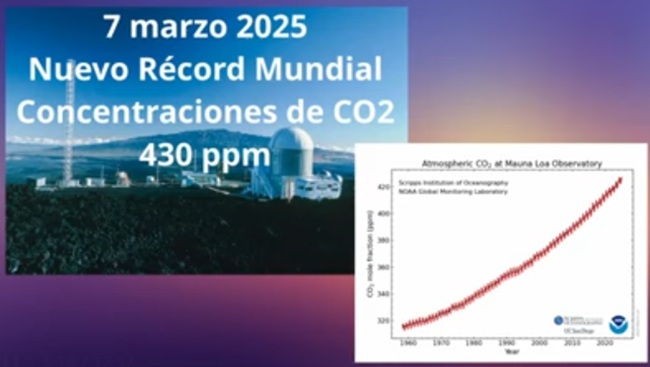
Dr. Rubiera emphasized that these are very hard data, and on top of that there are dangerous phenomena associated with global warming, such as tropical cyclones. “Let's remember the last hurricane season, which was extraordinarily active, and the diverse climate phenomena that have occurred around the world: floods, forest fires...
“Therefore, this year's theme is of great importance because early warning systems are what allow us to alert the population and organizations of dangerous phenomena well in advance. That’s why the slogan of this World Meteorological Day, in this new reality of global climate, reminds us that early warning systems are not a luxury, but rather a need. They are very solid investments because they offer a return up to 10 times greater than any disasters that may occur.
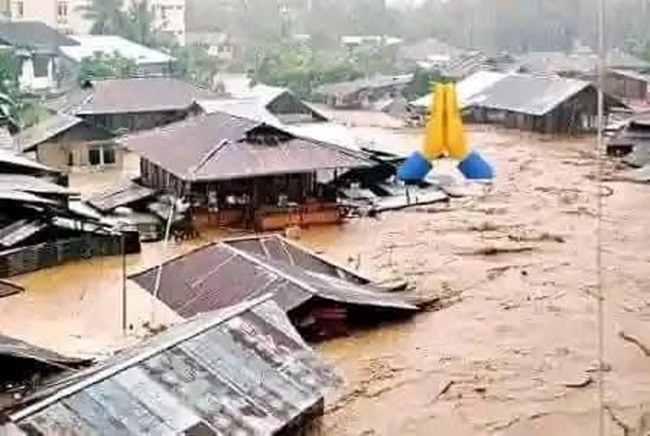
“And this is something very important that must be taken into consideration, and that effective early warning systems must be established in all regions and countries of the world because half of the countries in the world don’t have them to this day,” concluded the respected Cuban meteorologist.
More than just forecasters
On the occasion of this anniversary and also the 75th anniversary of the WMO, a message from its Secretary, Professor Celeste Saulo, https://wmo.int/en/content/message-on-the-occasion-of-world-meteorologic...... pays tribute to the staff of National Meteorological and Hydrological Services “who can be compared to medical and nursing personnel: they work 24 hours a day, seven days a week, to safeguard and promote the well-being of the population.”
It emphasizes that “We are more than just forecasters” and argues that the scientific data, information, and services provided by the WMO community inform important decisions related to agriculture, aviation, maritime transport, energy, water management, health, and life.
“Over the past 75 years, we have contributed billions of dollars in added value to the global economy. Furthermore, we have avoided billions of dollars in economic losses caused by weather, climate, and water hazards. Not to mention the hundreds of thousands of lives we have saved,” the text emphasizes.
Regarding the Early Warnings for All initiative, while highlighting progress, it urges us to do more and faster in terms of innovating together to expand the reach of technologies, maintaining unity to foster collaboration between countries, and investing jointly to generate resources, mobilize them, and use them for the common good. “Let’s reaffirm our commitment to a safer and more sustainable world. We owe it to our children,” is the appeal that concludes the message.
Meteorology in Cuba
Since late 1990s and with greater emphasis in this century, the Weather Institute, together with the Environment Agency at the Science, Technology and Environment Ministry, set in motion and has prioritized the functioning of seven systems of alert and early warning.
This is how colleague Orfilio Peláez recalls in the newspaper Granma, where he comments that probably the best-known of these is the Early Warning System (EWS) for tropical cyclones and other dangerous meteorological phenomena, which is key to ensuring timely forecasting and public information, as well as ensuring that, once the early warning notice is issued, Civil Defense can guide the appropriate measures to be taken.
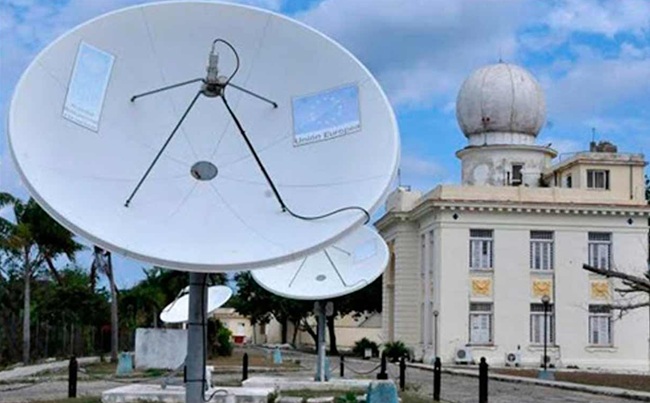
Cuba also has the Tropospheric Ozone (O3) Monitoring and Early Warning System, a polluting compound that, when exceeding permissible levels, often causes a decrease in yields and crop quality in crops such as tobacco, potatoes, tomatoes, and garlic, the cited source indicates.
Likewise, meteorological sciences contribute to the national economy and the environment, thanks to the use of early warning systems for agricultural drought and forest fires, while also studying the effects of climate variability on human health, with an emphasis on infectious diseases.
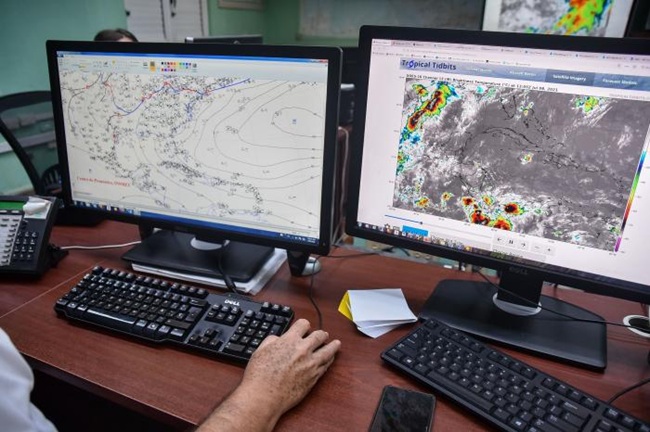
“We have an early warning system through which we inform health institutions, one to three months in advance, about possible outbreaks and increases in diarrheal, respiratory, and dengue diseases, primarily.
“Managed jointly with the Ministry of Public Health, beyond its proven effectiveness, its application has contributed to planning response actions that made it possible to address various epidemic contingencies that have occurred nationwide in recent times,” Paulo Lázaro Ortiz Bulto, PhD, a researcher at the Climate Center of the Institute of Meteorology, explained to Granma.
The Weather Institute is an example of commitment, dedication, and scientific rigor, and the Cuban people are grateful for it on this World Meteorological Day and every day of each year.
Translated by Amilkal Labañino / CubaSí Translation Staff


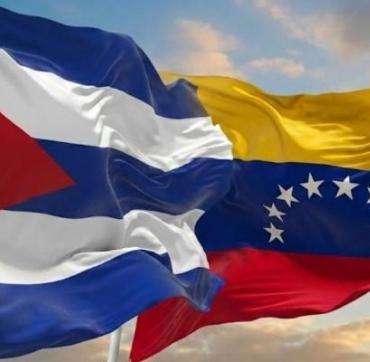











Add new comment